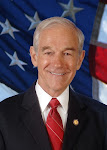Abortion is a touchy subject, but it is particularly touchy amongst minority populations which are disproportionally affected by the practice. According to the Gutmacher Institute, which is the research arm of Planned Parenthood (the largest abortion provider in the United States), nearly 60% of abortions are performed on minorities, even though minorities only make up about 25% of the US population.
Perhaps the most surprising fact about abortion today is that none of this should be surprising at all! The fact is that contemporary support for abortion found its start in the writings of people such as Margaret Sanger, whose work and influence cannot be overstated.
Sanger was an ardent feminist, progressive and racist who did much of her work between the 1920’s and 1940’s. She supported eugenicist policies which are said to have inspired Nazi German policies and policy makers (including Hitler). Sanger, like many Progressives of her time, believed that a better, stronger, more intelligent and all around superior race could be produced in America if only the birthrates and habits of minority populations and “lesser” peoples could be controlled. In The Pivot of Civilization, Sanger wrote, “There is but one practical and feasible program in handling the great problem of the feeble-minded. That is, as the best authorities are agreed, to prevent the birth of those who would transmit imbecility to their descendants.”
And what form should prevention take? Abortion, sterilization and other forms of “birth control”.
Sanger went on to found a number of organizations, the most prominent being today’s Planned Parenthood. Planned Parenthood performs over 300,000 abortions per year and about 80% of their “clinics” are located in predominantly minority areas. In 2008, the organization found itself embroiled in serious controversy, just like ACORN today- another organization formed out of the progressive movement.
In a similar fashion to how ACORN landed in hot water, an undercover caller posed as a wealthy donor and offered a number of Planned Parenthood clinics large donations but with this caveat: they had to be used to perform abortions on black women only. “No problem!” responded each clinic.
And while abortion disproportionately affects minorities in general, it is particularly harmful to black and Hispanic populations. In fact, blacks make up for about 36% of yearly abortions and Hispanics about 20%, meaning that non-Hispanic blacks and Hispanics alone make for the majority of abortions. Even more disturbing, 25% of Hispanic pregnancies end in abortion, meaning that 1 out of every 4 Hispanic babies are aborted before they are ever able to see the light of day.
How does this affect these populations? According to John Lott, “If those aborted children had been born, the number of blacks born would have been slightly over 50 percent greater than it was.” This is the lawful decimation of a race, and yet it is hailed as “progressive”.
One can make the argument that blacks and Hispanics have a disproportionately high number of abortions because they are disproportionately impoverished, but the facts prove this assertion wrong. According to the very same Guttmacher report, “…at all income levels, abortion rates for black and Hispanic women were higher than those for white women.” This is particularly interesting considering the disproportionate high rates of church attendance of Hispanic and black communities.
And as one should expect, Americans respond generously to the problem of poverty. Each year Americans donate hundreds of millions of dollars to private charities to help the poor, disadvantaged and needy. But according to progressives like Margaret Sanger, such charity should be ceased! “Such ‘benevolence’ is not merely ineffectual,” wrote Sanger in Pivot of Civilization, “it is positively injurious to the [larger American] community and the future of the [presumably] white] race.”
So not only did Sanger and the early abortion lobbyists support abortion and sterilization as a means to controlling minority and “unwanted” populations but they went even further and deemed charity to these people as counterproductive to their ideal version of society!
The evidence against the progressives is startling, but it is all the more jarring when we realize that many politicians trace their ideological heritage back to people such as Sanger. Hillary Clinton, when asked if she would consider herself a liberal said during the campaign, “I prefer the word progressive, which has a real American meaning going back to the progressive era at the beginning of the twentieth century. I consider myself a modern progressive.”
The Left has given up on calling itself “liberal” and now considers itself “progressive”. I am by no means a liberal, but I would choose a liberal any day to the disastrous and terrible results the progressive movement has wrought on our country.
Chadwick Ciocci is an editor for Parcbench.com, a student of philosophy and theology at Fordham University and running for his fourth-term in public office in Connecticut.





